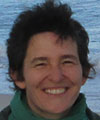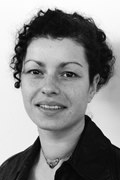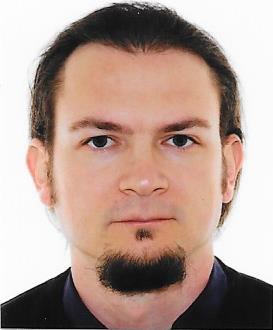Studying at the University of Verona
Here you can find information on the organisational aspects of the Programme, lecture timetables, learning activities and useful contact details for your time at the University, from enrolment to graduation.
Academic calendar
The academic calendar shows the deadlines and scheduled events that are relevant to students, teaching and technical-administrative staff of the University. Public holidays and University closures are also indicated. The academic year normally begins on 1 October each year and ends on 30 September of the following year.
Course calendar
The Academic Calendar sets out the degree programme lecture and exam timetables, as well as the relevant university closure dates..
| Period | From | To |
|---|---|---|
| Sem. 1A | Sep 26, 2022 | Nov 5, 2022 |
| Sem. 1B | Nov 14, 2022 | Dec 23, 2022 |
| Sem. 2A | Feb 13, 2023 | Mar 30, 2023 |
| Sem. 2B | Apr 11, 2023 | May 27, 2023 |
| Session | From | To |
|---|---|---|
| Sessione Invernale | Jan 9, 2023 | Feb 11, 2023 |
| Sessione Estiva | Jun 5, 2023 | Jul 22, 2023 |
| Sessione Autunnale | Aug 28, 2023 | Nov 23, 2023 |
| Sessione straordinaria invernale | Jan 8, 2024 | Feb 17, 2024 |
| Session | From | To |
|---|---|---|
| Sessione Estiva | Jul 10, 2023 | Jul 15, 2023 |
| Sessione Autunnale | Nov 6, 2023 | Nov 11, 2023 |
| Sessione invernale | Apr 2, 2024 | Apr 8, 2024 |
| Period | From | To |
|---|---|---|
| Festa di Ognissanti | Nov 1, 2022 | Nov 1, 2022 |
| Festività Della Immacolata Concezione | Dec 8, 2022 | Dec 8, 2022 |
| Vacanze natalizie | Dec 24, 2022 | Jan 8, 2023 |
| Vacanze di Pasqua | Apr 7, 2023 | Apr 10, 2023 |
| Festa della Liberazione | Apr 25, 2023 | Apr 25, 2023 |
| Festa del lavoro | May 1, 2023 | May 1, 2023 |
| Festa del Santo Patrono | May 21, 2023 | May 21, 2023 |
| Festa della Repubblica | Jun 2, 2023 | Jun 2, 2023 |
| Chiusura estiva | Aug 14, 2023 | Aug 19, 2023 |
Exam calendar
Exam dates and rounds are managed by the relevant Humanistic Studies Teaching and Student Services Unit.
To view all the exam sessions available, please use the Exam dashboard on ESSE3.
If you forgot your login details or have problems logging in, please contact the relevant IT HelpDesk, or check the login details recovery web page.
Should you have any doubts or questions, please check the Enrollment FAQs
Academic staff
 carlo.callegaro@univr.it
carlo.callegaro@univr.it
 piergiorgio.reggio@univr.it
piergiorgio.reggio@univr.it
Study Plan
The Study Plan includes all modules, teaching and learning activities that each student will need to undertake during their time at the University.
Please select your Study Plan based on your enrollment year.
1° Year
| Modules | Credits | TAF | SSD |
|---|
2° Year activated in the A.Y. 2023/2024
| Modules | Credits | TAF | SSD |
|---|
1 MODULE TO BE CHOSEN BETWEEN THE FOLLOWING| Modules | Credits | TAF | SSD |
|---|
| Modules | Credits | TAF | SSD |
|---|
1 MODULE TO BE CHOSEN BETWEEN THE FOLLOWING| Modules | Credits | TAF | SSD |
|---|
Legend | Type of training activity (TTA)
TAF (Type of Educational Activity) All courses and activities are classified into different types of educational activities, indicated by a letter.
Learning and communication processes in educational settings (2022/2023)
Teaching code
4S007371
Teacher
Coordinator
Credits
6
Language
Italian
Scientific Disciplinary Sector (SSD)
M-PSI/04 - DEVELOPMENTAL AND EDUCATIONAL PSYCHOLOGY
Period
Sem. 2A dal Feb 13, 2023 al Mar 30, 2023.
Learning objectives
The course aims, firstly, to offer both advanced knowledge and specialist skills in the theoretical, epistemological, methodological and educational issues of the processes of learning and communication in a range of organizational contexts. The second broad aim of the course is to enhance the student’s ability to integrate theoretical and practical knowledge in order to design educational intervention programmes in various contexts. By the end of the course students will be able to: - identify and evaluate the characteristics of the processes of learning, language and communication and their interrelationships, with reference to the main theoretical psychological models; - consider critically the relationships between the individual, social, educational and cultural factors that influence the learning and communicative processes in interpersonal, group, organizational and inter-institutional contexts; - apply the knowledge acquired in designing intervention programmes for the enhancement of communications and learning in various educational contexts: individual, group and service; local, national and international.
Prerequisites and basic notions
Psychological knowledge acquired during the course is a prerequisite, in particular about educational and learning psychology.
Program
The syllabus is divided into three parts:
1) Introduction to the contents of the course. Main theoretical, epistemological, methodological, and applied issues relating to learning and communication processes.
2) Basic conceptual instruments for understanding the psychological mechanisms and the cognitive strategies that enable to communicate within educational and organizational contexts.
Specific theoretical contents:
- basic concepts of communication;
- understanding and production of messages;
- visual codes and verbal codes;
- non verbal communication;
- persuasive communication;
- obstacles towards an efficient communication.
Specific applied contents:
- groups and group communication;
- communication in managing conflicts;
- mass communication;
- public and organizational communication;
- political communication;
- marketing and communication;
- communication and health promotion;
- communication of risk and danger;
- technologies for communication and social media.
3) Examples of projects and intervention programmes in educational and organizational contexts, including public communication campaigns and training on emotions related to natural and technological disasters such as pandemic, earthquakes, floods, fires, etc. Exercises and discussion in small and large groups.
Bibliography
Didactic methods
The course will include frontal lessons, aiming at transmitting basic notions, integrated by cooperative learning, aiming at deepening the knowledge on specific aspects of the syllabus. The content of texts and lessons is coherent with the syllabus. Further didactic materials are available from the teacher. The students will be actively involved in group and individual discussions and project work under the supervision of the teacher, to promote their critical reflection on the topics covered. Attendance at the teaching sessions is recommended. Lessons will be recorded and they will be made available to the students.
During the whole academic year, in addition, the teacher will receive the students individually, at the times indicates in the website (it is not necessary to arrange specific appointments) which are constantly updated.
During the first lesson, the teacher will present the whole calendar of the didactic activities with dates and topics of the lessons, specifying the time and the rooms.
Texts for the exam:
Ligorio, M. B., De Corte, E., Dochy, F., & Cacciamani, S. (2015). Le scienze dell’apprendimento. Carocci.
Lotto, L., & Rumiati, R. (2013). Introduzione alla psicologia della comunicazione. Il Mulino.
Raccanello, D., Vicentini, G., & Burro, R. (2021). Prevenzione emotiva e terremoti. Un percorso per bambini. McGraw-Hill Education.
Baggio, F. (2013). Assertività e training assertivo. Franco Angeli.
Suggested texts:
Santrock., J. W. (2021). Psicologia dell’educazione. McGraw-Hill Education.
Learning assessment procedures
The exam is formed by a written part and an optional oral part. Both cover the whole syllabus. The written part includes one open-ended question and ten definitions on theoretical models and learning and communication processes in educational and organizational contexts, and one open-ended question relating to project planning. The duration of the written part is one hour and a half. The oral part is optional, and it consists of an integrative interview requested by the student, after passing the written part.
For students attending the course there will be an intermediate assessment using the same method as the final exam; for them, the open-ended question relating to project planning will be substituted by evaluation of the cooperative group project.
Evaluation criteria
The aim of the exam is to verify the extent to which the expected learning results are achieved. In particular, the students will demonstrate that they:
- are familiar with current knowledge in the field of psychology of learning and communication–theoretical and methodological–and its application in educational and organizational contexts;
- have understood the main issues in, and the stages of, the design of training projects in learning and communication skills in various contexts;
- can discuss their knowledge using technical and critical language, typical of psychology, identifying and evaluating the relevant concepts and methodological issues;
- understand and can use the main methodologies in the psychology of learning and communication for project planning in educational and organizational contexts;
- can critically analyse cases studies and the experience discussed, with particular reference to training needs.
Criteria for the composition of the final grade
The evaluation of the exam is expressed in thirties. For the written part, there will be maximum ten points for each of the open-ended questions, and one point for each correct definition. For the oral part, there will be maximum three points.
Exam language
Italiano
Type D and Type F activities
I 9 crediti liberi a scelta dello studente (ambito “D”) hanno lo scopo di offrire allo studente la possibilità di personalizzare il proprio percorso formativo permettendo di approfondire uno o più argomenti di particolare interesse legati al proprio percorso accademico.
Per garantire questo fine, si invitano gli studenti a rispettare le seguenti indicazioni per il completamento di tale ambito:
- almeno un’attività formativa erogata come esame universitario (con relativo voto in trentesimi) selezionato tra le attività del proprio piano non seguite in precedenza o fra gli insegnamenti dei CdLM del Dipartimento di Scienze Umane;
- massimo 6 cfu relativi a competenze linguistiche (oltre a quelli previsti dal PdS);
- massimo 6 cfu relativi a competenze informatiche (oltre a quelli previsti dal PdS);
- massimo 4 cfu di tirocinio, (oltre a quelli previsti dal PdS);
- massimo 6 cfu di attività laboratoriale/esercitazioni (compresi quelli previsti nei PdS per l’ambito) di regola viene riconosciuto 1 cfu ogni 25 ore di attività;
- massimo 6 cfu di attività seminariale/convegni/cicli di incontri/formative in genere (sia accreditata dal Dipartimento di Scienze Umane che extrauniversitaria) – di regola viene riconosciuto 1 cfu ogni 8 ore di partecipazione e/o 2 giornate salvo diversamente deliberato;
- non vengono valutate attività svolte in Erasmus non inserite nei Learning Agreement.
Altre informazioni sono reperibili nella Guida per i crediti liberi che è possibile trovare quì.
COMPETENZE TRASVERSALI
Scopri i percorsi formativi promossi dal Teaching and learning centre dell'Ateneo, destinati agli studenti iscritti ai corsi di laurea, volti alla promozione delle competenze trasversali:
https://talc.univr.it/it/competenze-trasversali
| years | Modules | TAF | Teacher |
|---|---|---|---|
| 1° 2° | Learning and communication in educational settings: planning of interventions | D |
Daniela Raccanello
(Coordinator)
|
| 1° 2° | EXPOSED BODIES - Diotima seminar | D |
Rosanna Cima
(Coordinator)
|
| 1° 2° | Human Resources Functions (2022/2023) | D |
Andrea Ceschi
(Coordinator)
|
| 1° 2° | Interventi di comunita': tecniche per la risoluzione relazionale dei conflitti | D |
Anna Maria Meneghini
(Coordinator)
|
| 1° 2° | Neuropsychology Laboratory | D |
Valentina Moro
(Coordinator)
|
| 1° 2° | The individual and organizational assessment : a guide to the main psychological tests | D |
Barbara Giacominelli Gasbarro
(Coordinator)
|
| 1° 2° | Being and well-being in the workplace: promoting organizational well-being starting from the prevention of psychosocial risks. | D |
Riccardo Sartori
(Coordinator)
|
| 1° 2° | Summer school: human sciences and society - (HSAS) – 2022/2023 | D |
Federica De Cordova
(Coordinator)
|
| years | Modules | TAF | Teacher |
|---|---|---|---|
| 1° 2° | Business English for everybody | D |
Manuel Boschiero
(Coordinator)
|
| 1° 2° | Russian for everybody | D |
Maria Gabriella Landuzzi
(Coordinator)
|
| years | Modules | TAF | Teacher |
|---|---|---|---|
| 1° 2° | APsyM workshop on quantitative data analysis | D |
Margherita Brondino
(Coordinator)
|
| 1° 2° | Work and Organizational Psychology (WOP) focus groups | D |
Riccardo Sartori
(Coordinator)
|
| years | Modules | TAF | Teacher |
|---|---|---|---|
| 1° 2° | Interventi e tecniche per lo sviluppo di comunita' | D |
Anna Maria Meneghini
(Coordinator)
|
| 1° 2° | APsyM workshop on quantitative data analysis | D |
Margherita Brondino
(Coordinator)
|
| 1° 2° | Mindfulness and nature. Feeling better at work. Nature-based mindfulness practices for coping with stress in the workplace | D |
Margherita Pasini
(Coordinator)
|
| 1° 2° | University and DSA: Methods and strategies for studying and studying at university | D |
Ivan Traina
(Coordinator)
|
| 1° 2° | Work and Organizational Psychology (WOP) focus groups | D |
Riccardo Sartori
(Coordinator)
|
| years | Modules | TAF | Teacher |
|---|---|---|---|
| 1° 2° | Ethics in psychology | D |
Elena Trifiletti
(Coordinator)
|
| 1° 2° | The Talks of EThoS Research Centre | D |
Carlo Chiurco
(Coordinator)
|
Career prospects
Module/Programme news
News for students
There you will find information, resources and services useful during your time at the University (Student’s exam record, your study plan on ESSE3, Distance Learning courses, university email account, office forms, administrative procedures, etc.). You can log into MyUnivr with your GIA login details: only in this way will you be able to receive notification of all the notices from your teachers and your secretariat via email and soon also via the Univr app.
Graduation
Documents
| Title | Info File |
|---|---|
|
|
pdf, it, 99 KB, 13/10/23 |
|
|
pdf, it, 101 KB, 10/04/24 |
List of theses and work experience proposals
Student mentoring
Gestione carriere
Linguistic training CLA
Practical information for students
Documents
| Title | Info File |
|---|---|
|
|
pdf, it, 325 KB, 02/05/23 |
|
|
pdf, it, 212 KB, 02/05/23 |
|
|
pdf, it, 131 KB, 02/05/23 |
Stage e Tirocini
Lo/a studente/essa tirocinante curricolare sarà chiamato/a svolgere, presso gli Enti che lo ospitano, attività che prevedono competenze associate alla figura professionale dello Psicologo, in particolare lo Psicologo per la formazione, e nello specifico:
- attività di progettazione, realizzazione e valutazione dell’efficacia di interventi di percorsi formativi, nonché attività volte alla facilitazione dell'apprendimento nel ciclo di vita, in particolare in contesti organizzativi;
- attività che prevedano l’analisi delle relazioni interpersonali, dei contesti organizzativi e delle pratiche lavorative;
- attività che prevedano la gestione di processi organizzativi complessi, per lo sviluppo e la valorizzazione delle persone all'interno delle organizzazioni;
- attività di progettazione, realizzazione e valutazione di interventi psicologici volti all’orientamento scolastico e professionale;
- attività che prevedono l’uso di tecniche e strumenti di analisi delle situazioni e dei contesti, di raccolta di informazioni, e di interpretazione dei risultati, principalmente in relazione ai contesti organizzativi.
Tali attività si svolgono in Aziende ed Enti accreditati presso l’Ateneo. Lo/la studente/essa sarà seguito da un tutor accademico e da un tutor aziendale. Alle attività di tirocinio sono attribuiti n. 9 CFU (pari a 225 ore).
Linee Guida per lo Svolgimento dei Tirocini Curriculari
- Tutte le informazioni in merito agli stage per futuri studenti sono disponibili alla pagina Stage e tirocini.
- Tutte le informazioni in merito agli stage per studenti iscritti sono pubblicate in MyUnivr - come fare per - stage e tirocini.
- Tutte le informazioni in merito agli stage per le aziende sono disponili alla pagina Stage e tirocini per azienze.

 +39 045802 8405
+39 045802 8405




















